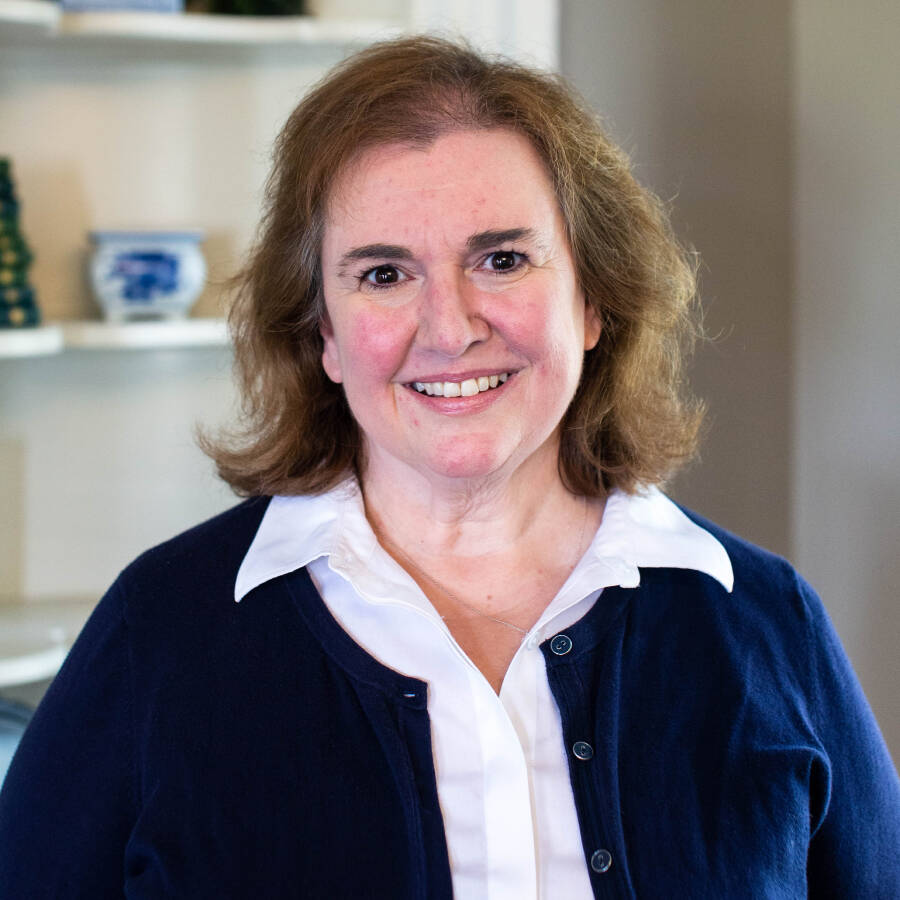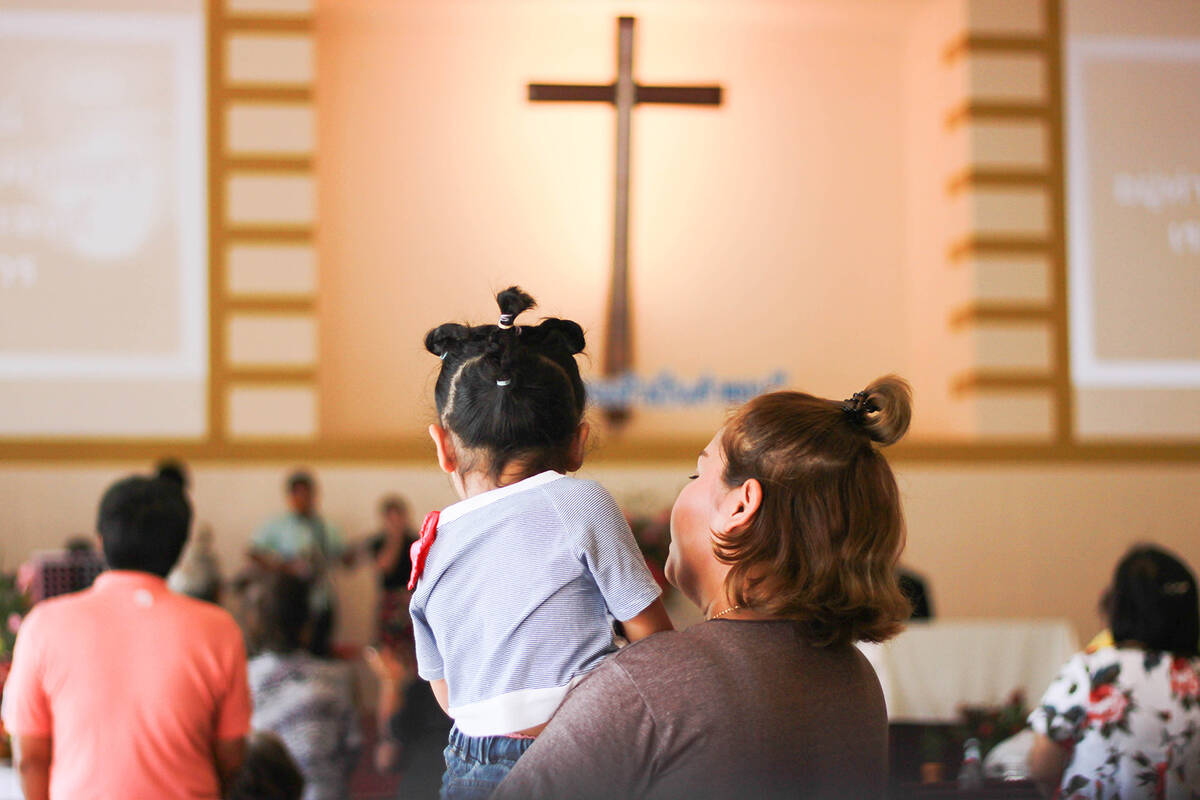“Oh, the greatest thing happened last week!” The pastor’s face lights up, and he throws his hands in the air. He’s the pastor of a Lutheran church in the Midwest, and he’s talking about how the boundaries of the liturgy help people, particularly children, enter into worship unselfconsciously. The pastor’s eyes twinkle as he describes what happened in worship the week before. At this church, a weekly post-communion prayer ends with a sung “Amen.” This week, though, after the song ended, one child-sized voice persisted in the silence, holding the “amen” with perfect pitch, quite a bit longer than everyone else. Moments like these are not uncommon at this church, where children join the worship service and take part in singing and reciting the Lord’s Prayer alongside the rest of the congregation. But rather than seeing these moments as a distraction, this pastor seems energized by them. His excitement is palpable, even over Zoom. “It’s so beautiful when that happens. It’s so wonderful,” he says, leaning into the camera, “because people are finding their spot.”
For this pastor, the gathered worship of the church has “soft boundaries,” a safe place where people of all ages can learn to be a part of something bigger than themselves, a gathering that is for you but not all about you. The unselfconscious worship participation he describes is appealing in a world saturated with social media performance. What would it be like to learn to belong somewhere? To be free to find your spot without shame? For many, this is not how they would describe church, and pastors know it. Theories abound about why children grow up and leave the church, but one that no one seems to spend much time on is the idea that, with good intentions, the church squanders the years when a child is interested in learning to belong, filling those years instead with entertainment, childcare, or age-segregated learning environments, which, although helpful, are no replacement for worship among the people of God.
These are the kinds of stories we’re listening to and questions we’re asking at the Center for Faith & Children at Trinity Evangelical Divinity School. This new center was founded with a 1.25 million dollar grant from Lilly Endowment, Inc. Dr. Mimi Larson, Executive Director of the Center, along with a few doctoral students from TEDS, spent last summer interviewing over twenty-five pastors across the United States and Canada, with the aim to learn what questions they have and how CFC can help them serve, minister with, and understand the children in their midst. While the CFC will use what they learned to direct initiatives and help guide content and resource development, we also believe that the generosity of these pastors ought to be shared with Churches, educational institutions, pastors, ministry leaders, and parents as well.
Here is what we discovered
Pastors value the children in their churches
Across the board, pastors spoke of valuing children as an important part of the congregation. Many pastors spoke with urgency about the importance of discipling children, equipping church members to pour into the lives of the children in their church, and expressed a desire to communicate a value for children to their congregation.
Pastors often feel unprepared to translate that value into action
Throughout the interviews, however, many pastors seemed at a loss to show how that value translated into any concrete ministry with children. One pastor observed that the only way children were included in the church’s worship service was the announcement to send them somewhere else. Another pastor mentioned realizing that he was confirming children who hadn’t actually attended a worship service before. Several pastors spoke of a lack of training for ministry with children during their seminary education. Pastors who did receive training cited one class or referenced developmental psychology only. In the memory of these pastors, children were rarely referenced in their seminary classes at all. Most pastors cited family members, childhood experiences, or their own personal reading as the place where they learned about how to relate to and minister with children. This led us to wonder whether or not institutional training of pastors implicitly communicates that children are not a part of the congregation pastors are being prepared to shepherd.
Pastors often have to act as interpreters between the generations
Another concern that came up consistently among pastors was the desire to help people connect across generations, both in families and within the wider church context. Pastors often noted that this is a countercultural and difficult project, especially when there are cultural concerns (immigrant communities). A few different pastors mentioned feeling the need to act as an interpreter between the generations in order to help them understand one another so they could worship & work together. Pastors expressed a desire for intergenerational worship and a loss for how to help lead their congregation into that experience.
Pastors are hungry for collaboration
Pastors were also interviewed about the faith formation of their own families. Regardless of how old their children were, pastors expressed a desire to disciple their children alongside other parents who cared deeply about their children’s faith formation. Many pastors expressed a desire to make opportunities like this for those in their congregation as well. Younger pastors tended to ask for more resources, while older pastors tended to ask for more environments for collaboration and ideas.
What does this mean for the Center for Faith and Children?
Our team at the Center for Faith and Children is committed to serving children’s ministers, pastors, and parents as they seek to understand, appreciate, and learn from the faith of the children in their midst. As we have listened to pastors and ministry leaders over the last year, it has become apparent that people are ready for a new way of being with children in the church but are often unsure of how that can look in their environment. Center for Faith and Children, we want to imagine together what a vibrant life with God could look like for the children we know. Chances are, it’s already happening right under our noses. Exciting research is being done regarding how children make meaning of and engage their faith as children. Scripture is rich with a theology of children that would make our jaws drop if we really paid attention, and there are experienced ministry scholars and practitioners who care deeply about helping the church embrace and learn from children. Center for Faith & Children is committed to providing a bridge between these resources and churches, pastors, and parents. Through local events, online resources, and learning communities, the Center for Faith and Children will connect ministry leaders to the resources and communities they need to help their communities value and include children as meaningful parts of the faith community.
______
Lindsey Goetz, the Resource Director for the Center for Faith and Children, contributed to this article.


